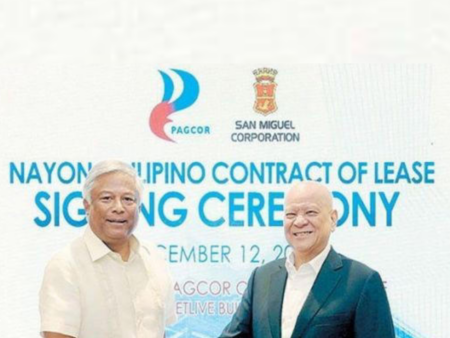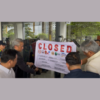The Philippine Amusement and Gaming Corporation (PAGCOR) has announced the cessation of all Philippine Offshore Gaming Operator (POGO) activities across the country. This decision follows a directive from President Ferdinand Marcos Jr. as part of a nationwide effort to eliminate offshore gaming operations by the end of 2024. The closure of the largest POGO hub at Island Cove in Kawit, Cavite, marks a significant milestone in this initiative.
The End of Operations at Island Cove
Island Cove, a sprawling 33-hectare property in Cavite, was the epicenter of POGO activities in the Philippines. Operated by Oriental Gaming Corporation, the facility housed 57 buildings and once employed approximately 30,000 workers. Its closure represents a decisive step in the government’s commitment to eradicating offshore gaming operations.
The hub was more than just a workplace for offshore gaming companies. It included a range of community-focused amenities, such as:
- Employee dormitories.
- Gaming hubs and office spaces.
- Cafés, grocery stores, and restaurants.
- Clinics, spas, and beauty salons.
PAGCOR Chairman and CEO Alejandro Tengco emphasized that the facility’s operations have been fully terminated, stating: “Anybody can now see that offshore gaming operations here have ceased completely.”
Government Oversight and Compliance
The closure was carried out under the supervision of top government officials, including:
- Alejandro Tengco, PAGCOR Chairman and CEO.
- Jonvic Remulla, Interior Secretary.
- Gilbert Cruz, Executive Director of the Presidential Anti-Organized Crime Commission (PAOCC).
- Rommel Francisco Marbil, Philippine National Police (PNP) Chief.
These officials ensured the operation’s compliance with President Marcos Jr.’s directive. The process involved collaboration with the Department of Labor and Employment (DOLE) and the Bureau of Immigration (BI) to facilitate the smooth downgrading of employment visas for affected workers.
Why the Philippine Government is Shutting Down POGOs
The decision to shut down POGOs stems from several critical concerns, including:
1. Combatting Organized Crime
POGOs have been associated with issues such as money laundering, illegal recruitment, and human trafficking. The government’s crackdown aims to dismantle these networks and protect the country’s reputation.
2. Addressing Social Concerns
The presence of POGOs has raised social issues, including increased criminal activities and a surge in unregulated employment. Closing these operations is seen as a way to restore public order and safety.
3. Economic Implications
While POGOs contributed significantly to government revenues, their operations have also strained public resources. The closure is intended to refocus economic priorities on sustainable and transparent industries.
Oriental Gaming Corporation’s Compliance
Oriental Gaming Corporation, the operator of Island Cove, has fully adhered to the government’s directives. Tengco confirmed: “They have complied with the President’s directive, and there are no violations here.”
This compliance underscores the effectiveness of the government’s coordinated approach, ensuring a seamless transition for the company and its employees.
Impact on Workers and Businesses
The closure of POGOs affects thousands of workers, many of whom are foreign nationals. The government has taken measures to mitigate the impact, including:
- Downgrading work visas to facilitate repatriation or transition to other employment opportunities.
- Coordinating with local agencies to provide assistance and ensure compliance with labor laws.
Businesses within the POGO ecosystem, such as suppliers and service providers, are also adapting to the new regulatory landscape.
PAGCOR’s Vision for the Future
PAGCOR remains committed to transforming the Philippines’ gaming industry into a model of transparency and integrity. The agency’s strategic priorities include:
1. Enhancing Regulatory Oversight
PAGCOR is strengthening its monitoring mechanisms to prevent the resurgence of unauthorized gaming operations.
2. Promoting Legitimate Gaming Ventures
The focus will shift towards promoting regulated gaming establishments that contribute to the economy without compromising social values.
3. Supporting Affected Communities
Efforts are underway to provide support for communities and workers impacted by the closures, ensuring a fair transition.
The Bigger Picture: Philippines’ Gaming Industry Transformation
The shutdown of POGOs marks a turning point for the Philippines’ gaming industry. By prioritizing regulation and transparency, the government aims to rebuild trust and attract legitimate investments. This move aligns with broader goals of fostering a sustainable economy while safeguarding the nation’s interests.
FAQs About the Shutdown of Philippine Offshore Gaming Operators (POGOs)
1. What led to the shutdown of all POGO operations in the Philippines?
The shutdown was part of a national initiative directed by President Ferdinand Marcos Jr. in July 2024. It aimed to eliminate all Philippine Offshore Gaming Operator (POGO) activities due to concerns over organized crime, social issues, and the need for transparent and sustainable economic practices.
2. What is Island Cove, and why was it significant to POGO operations?
Island Cove, located in Kawit, Cavite, was the largest POGO hub in the Philippines. Spanning 33 hectares with 57 buildings, it employed around 30,000 workers at its peak. The compound also included community facilities such as dormitories, gaming hubs, cafés, and clinics.
3. Who managed the closure of POGO operations at Island Cove?
The closure was overseen by top government officials, including:
- Alejandro Tengco, PAGCOR Chairman and CEO.
- Jonvic Remulla, Interior Secretary.
- Gilbert Cruz, PAOCC Executive Director.
- Rommel Francisco Marbil, PNP Chief.
4. What steps were taken to ensure compliance with the shutdown order?
Operators, including Oriental Gaming Corporation, worked with the Department of Labor and Employment (DOLE) and the Bureau of Immigration (BI) to downgrade employment visas for workers. This ensured a smooth transition for affected employees and full compliance with government directives.
5. Why did the government decide to eliminate POGOs?
The government’s decision was driven by several concerns:
- Links to organized crime, such as money laundering and human trafficking.
- Rising social issues, including unregulated employment and public safety concerns.
- The need to prioritize sustainable and transparent economic sectors.
6. What impact does the closure have on workers and businesses?
The shutdown affected thousands of workers, particularly foreign nationals employed by POGOs. The government is helping them transition through visa downgrades and support programs. Businesses that depended on POGOs, such as service providers, are also adjusting to the new regulatory environment.
7. How did Oriental Gaming Corporation respond to the directive?
Oriental Gaming Corporation, which operated Island Cove, complied fully with the government’s orders. PAGCOR confirmed that the operator adhered to all regulations and had no violations during the closure process.
8. What is PAGCOR’s vision for the Philippine gaming industry?
PAGCOR aims to:
- Strengthen regulatory oversight to prevent unauthorized gaming operations.
- Promote legitimate, transparent gaming ventures that contribute positively to the economy.
- Support affected workers and communities during the transition.
9. How does this move impact the Philippine gaming industry as a whole?
The closure of POGOs represents a shift toward prioritizing integrity and transparency in the gaming sector. This transformation is expected to rebuild trust, attract legitimate investments, and align with the government’s broader economic goals.


















